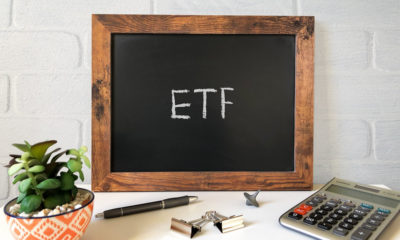Featured
OTC-X Companies: 44 Swiss SMEs Ranked According to the Second ESG Survey
The survey was conducted from July 18th, 2022 to September 30th, 2022 using the Surveymonkey survey software and is again representative. All industries represented on OTC-X participated in sufficient numbers. 14 companies belong to the tourism and mountain railroads sector, 10 are regional banks, seven each come from the manufacturing industry and the energy supply sector.

The ESG survey conducted by schweizeraktien.net for the second time this year met with an open ear among SMEs: 44 companies from the OTC-X universe took part, 15.8% more than in the first survey. Transparency increased significantly, with participants answering an average of 92.5% of the questions. Some developments are clearly gaining momentum, but some relevant ESG issues are still at a standstill – especially in the area of governance.
This year, management and boards are facing a whole range of challenges with rising inflation, shortages of energy and raw materials, the renewed strength of the Swiss franc, and a shortage of skilled workers. Nevertheless, 44 of the 155 SMEs whose shares are traded on OTC-X found the time to answer the 3 x 10 questions on the environment, social issues and governance. The response rate actually increased from 22.2% in 2021 to 28.4% now.
Read more on the subject and find the latest business headlines in the world with the Born2Invest mobile app.
Positive momentum on environmental issues
Sustainable management is not a contradiction to entrepreneurial activity, but rather an important part of it. The participating companies have recognized this. This year, for example, 84.1% say they have increased the share of renewable energies in their energy mix and intend to do so in the next two years. Last year, the comparable figure was 71.1%. There is no doubt that the increased cost of energy and also the idea of self-sufficiency play a role in this, but reducing emissions is the main purpose that has been pursued for some time and is therefore the determining factor.
Awareness of problem areas heightened
A striking feature of the comparison with the previous year is that there are significantly fewer “unknown” and “not answered” questions. It can be concluded from this that the decision-makers in SMEs have now also addressed the not-so-obvious questions. A typical example is whether there is a clearly defined compliance officer to whom employees can turn in the event of grievances. Last year, 18.2% of participants did not answer the question; this year, it was answered by all of them. In 2021, 39.5% answered yes, but now 70.5% answered yes in the second ESG survey. That’s a question where the improvement is impressive.
Broad participation from all industries
The survey was conducted from July 18th, 2022 to September 30th, 2022 using the Surveymonkey survey software and is again representative. All industries represented on OTC-X participated in sufficient numbers. 14 companies belong to the tourism and mountain railroads sector, 10 are regional banks, seven each come from the manufacturing industry and the energy supply sector. Furthermore, casino companies, food and cosmetics companies are represented.
Expanded basic population
Most of the participants were present in the previous year. However, some participants have dropped out and new ones have joined. For example, the number of participating energy companies increased by 75%. The population has expanded, but it has also changed. One consequence that does not quite seem to fit into the picture, at least intuitively, is shown by the first question. This is: Does your company have a plan for the gradual improvement of sustainability, which is aligned with the climate targets? Last year, a surprisingly high 76.3% answered in the affirmative, this year only 72.7%. However, the question does not take into account that there are also several participating energy companies that do not have such a plan, namely because their sole business purpose is the production of electricity exclusively from renewable energy sources.
Increased average transparency rate of 92.5%
Apart from the astonishingly high average transparency score of 92.5%, it is of course primarily the qualitative positioning, based on the answers to the 3 x 10 questions in the environmental, social and governance segments, that forms the subject of the survey. The quality results from the highest possible number of yes answers, the more the better.
Espace Real Estate and Plaston Holding on the top spot
With 26 yes answers each, Espace Real Estate and Plaston Holding share first place in the ranking this year. Cendres+Métaux and Grand Resort Bad Ragaz are in third place with 25 yes answers each. Griesser Holding and Energie Zürichsee Linth follow in fifth place with 24 yes responses. Swiss Sugar and Weleda share seventh place with 23 yes responses. Dolder Hotel, Raurica Wald and Weiss + Appetito share ninth place.
Yes answers rise in all three segments
On a positive note, the average scores increased in all three segments. In the environment segment, the average number of yes responses rose from 5.68 to 6.07. In the social affairs segment, the highest value was recorded at 7.41, compared with 7.00 in the previous year. The average score in the Governance segment rose from 4.63 to 4.82. The ranking by segment shows that apart from the top spots, other participating companies are exemplary. Engadin St. Moritz Mountains, for example, ranks fourth in the governance ranking together with other companies. In the social area, Dolder Hotel ranks first with other participants, and fifth place is shared by CKW, Bank Zimmerberg, WIR Bank, Rigi Bahnen, SSE and Stadtcasino Baden. In the environmental area, Bad Schinznach, Thermalbad Zurzach, Bernexpo and ADEV Solarstrom share position four with others.
Water consumption and air quality as blind spots
Despite the high average score of 6.07, there is still room for improvement in the environmental area. Some critical points have generally been neglected in the discussion. This is particularly true for water consumption and air quality in offices and production.
Has water consumption decreased in the last two years while water quality remained the same? Only 36.4% answered this question in the affirmative, 20.5% said no, but 9.1% did not answer the question, and 34.1% said “unknown.” In contrast, this year a significantly increased 81.8% of participants said that their waste volume has reduced in the last two years and should continue to be reduced.
Industry-specific differences
In the area of social issues, many values have remained at the high level of the previous year, improved or slightly decreased. Critical questions continue to include whether programs are installed to improve equal opportunities for all employees with regard to career and promotion opportunities.
In 2021, 44.7% of respondents had said yes. This year, while 50% said yes, there was also an almost equal increase in no responses to 43.2%. In return, only 6.8% did not answer the question, compared with 15.8% last year. This question also shows particularly clearly that the various industries tick differently. For example, 80% of the 10 participating regional banks have not established any programs to improve equal opportunities. But all seven industrial companies have such programs, i.e. 100% yes answers. In tourism, the yes rate is 50%, and in energy companies, 57.5%.
Code of conduct was established at 77.3% of participants
One of the clearly positive developments is that this year 77.3% of the participating companies have established a binding code of conduct that defines and requires ethical principles of behavior. Last year, the figure was 55.3%. The issue of wages is perhaps a special case, because it is a sensitive one and is sometimes handled in strict secrecy for understandable reasons.
The question is: Have wages at the lower wage levels grown at the same or higher percentage rate as the highest wages in the last two years and is this development expected to continue in the next two years? Here, the percentage of those who did not answer the question increased by almost five percentage points to 20.5%. 70.5% answered in the affirmative, a good 3% less than in the previous year.
Potential for improvement in governance
In the questions on governance, it is striking that many results are almost unchanged. An unchanged 69.5% specify a compensation system for members of the executive management and board of directors, including a cap on compensation. And an unchanged 47.4% provide information on the composition of the shareholder base including the names of majority shareholders.
Clearly, positive changes include responses to the question of whether all incumbent board members attended at least 75% of meetings, excluding cases with conclusive reasons. 97.7% answered yes, up from 55.3% in 2021, while no responses fell from 36.8% to zero. And only 2.3% did not answer the question.
However, there was also backsliding on a number of questions. For only 31.8%, the current auditing firm has been engaged for less than 10 years. Last year, it was still 47.4%. No accounted for a significantly increased 59.1%. When asked whether the board of directors has an information policy for the AGM and shareholders, only 47.7% said yes. Last year, the figure was 60.5%.
Conclusion of teh ESG survey
In the second ESG survey by schweizeraktien.net, not only did 15.8% more OTC-X listed SMEs participate than in the previous year, transparency also increased and, more importantly, the quality of the results also increased significantly compared to the values of the first survey a year ago. The balance can thus be assessed as clearly positive. From the exchange with the participating companies it also became clear that the initiative of schweizeraktien.net partly already found open doors, but could also open previously closed doors. After all, the companies whose shares are traded over the counter are not subject to any publication obligations apart from the essential figures, and certainly not with regard to sustainability parameters. The Code of Obligations is authoritative. This makes the answers to the 3 x 10 questions on the environment, social issues, and governance all the more meaningful, as they were given entirely without compulsion or obligation on their own initiative and in the pursuit of transparency.
The results are quite representative. They show that the SMEs surveyed are good corporate citizens who, in addition to core business growth and profit generation, care about customer needs, employee health and well-being, and regional concerns including flora and fauna.
The ESG survey had already sharpened the focus on some problem areas in the previous year, which is reflected in the partly significant improvements this year. Thus, the mission to jointly find and implement better solutions for the problems of our time as an SME network has gotten off to a good start. And as Aristotle already knew, a good beginning is half of the whole!
__
(Featured image by andibreit via Pixabay)
DISCLAIMER: This article was written by a third party contributor and does not reflect the opinion of Born2Invest, its management, staff or its associates. Please review our disclaimer for more information.
This article may include forward-looking statements. These forward-looking statements generally are identified by the words “believe,” “project,” “estimate,” “become,” “plan,” “will,” and similar expressions. These forward-looking statements involve known and unknown risks as well as uncertainties, including those discussed in the following cautionary statements and elsewhere in this article and on this site. Although the Company may believe that its expectations are based on reasonable assumptions, the actual results that the Company may achieve may differ materially from any forward-looking statements, which reflect the opinions of the management of the Company only as of the date hereof. Additionally, please make sure to read these important disclosures.
First published in schweizeraktien.net, a third-party contributor translated and adapted the article from the original. In case of discrepancy, the original will prevail.
Although we made reasonable efforts to provide accurate translations, some parts may be incorrect. Born2Invest assumes no responsibility for errors, omissions or ambiguities in the translations provided on this website. Any person or entity relying on translated content does so at their own risk. Born2Invest is not responsible for losses caused by such reliance on the accuracy or reliability of translated information. If you wish to report an error or inaccuracy in the translation, we encourage you to contact us.

-

 Crypto2 weeks ago
Crypto2 weeks agoRipple Launches EVM Sidechain to Boost XRP in DeFi
-

 Biotech1 day ago
Biotech1 day agoAdvancing Sarcoma Treatment: CAR-T Cell Therapy Offers Hope for Rare Tumors
-

 Impact Investing1 week ago
Impact Investing1 week agoShein Fined €40 Million in France for Misleading Discounts and False Environmental Claims
-

 Impact Investing5 days ago
Impact Investing5 days agoVernazza Autogru Secures €5M Green Loan to Drive Sustainable Innovation in Heavy Transport
























